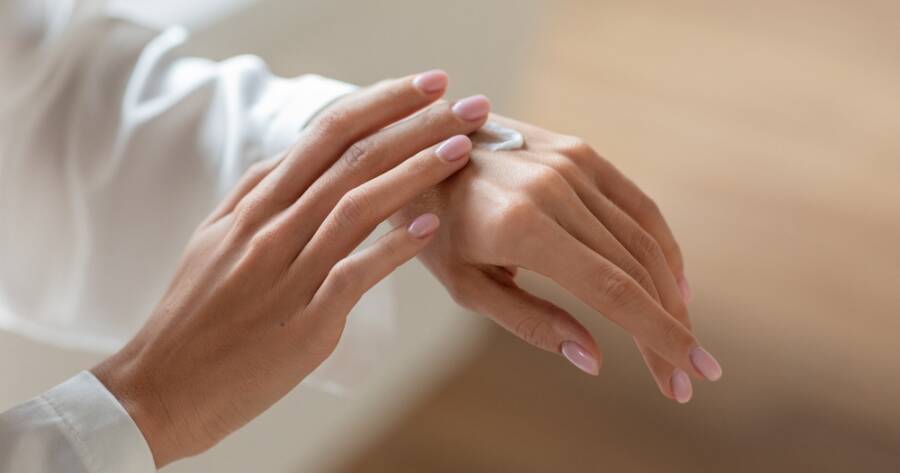Eczema, also known as atopic dermatitis, is a chronic skin condition that affects millions of people worldwide. It causes the skin to become dry, itchy, inflamed, and sometimes cracked, leading to discomfort and frustration. While eczema can vary in severity and duration, managing the symptoms and finding effective relief is essential for improving quality of life. Explore dermatologist-approved tips and treatments to help alleviate eczema symptoms and manage flare-ups more effectively.
Understanding Eczema
Eczema is an inflammatory skin condition that can be triggered by various factors such as genetics, environmental allergens, irritants, stress, and even certain foods. It is most commonly seen in children, though it can affect people of all ages. The hallmark symptoms of eczema include dry, itchy patches of skin, redness, and sometimes fluid-filled blisters.
Top Dermatologist-Approved Tips for Eczema Relief
If you are dealing with eczema, several lifestyle changes and tips recommended by dermatologists can help provide relief and manage symptoms:
- Moisturize Frequently: Dry skin is one of the main contributors to eczema flare-ups. Keeping your skin well-moisturized helps form a protective barrier and prevents dryness that leads to irritation. Dermatologists recommend using thick, fragrance-free moisturizers that are rich in emollients, such as petroleum jelly, shea butter, or ceramide-based products. Apply moisturizer immediately after bathing, while the skin is still damp, to lock in moisture.
- Take Short, Lukewarm Showers: Hot water can strip the skin of its natural oils, making eczema worse. Dermatologists suggest taking short showers with lukewarm water instead. Avoid using harsh soaps and opt for mild, fragrance-free cleansers. After your shower, gently pat your skin dry with a towel and immediately apply moisturizer to prevent moisture loss.
- Identify and Avoid Triggers: Identifying the factors that trigger your eczema flare-ups is essential for long-term relief. Common triggers include harsh soaps, certain fabrics (like wool), pet dander, pollen, and even stress. Dermatologists recommend keeping a symptom diary to track when flare-ups occur and what might have contributed to them. Once you identify your triggers, take steps to minimize or eliminate exposure to them.
- Wear Soft, Breathable Clothing: Clothing made from rough fabrics like wool or synthetic materials can irritate the skin and worsen eczema. Dermatologists advise wearing soft, breathable fabrics such as cotton to minimize irritation. Additionally, wash your clothes with a gentle, fragrance-free detergent to avoid irritating your skin.
- Practice Stress Management: Stress is a known trigger for eczema flare-ups, as it can worsen inflammation. Practicing stress-reducing techniques such as deep breathing, meditation, yoga, or regular physical exercise can help keep stress levels in check. Ensuring you get enough sleep is also important, as lack of rest can exacerbate symptoms.
Effective Eczema Treatments
In addition to lifestyle changes, there are several treatments that dermatologists recommend to help manage eczema symptoms:
- Topical Steroid Creams: Topical corticosteroids are one of the most commonly prescribed treatments for eczema. These creams help reduce inflammation and relieve itching. While they can be effective, it’s important to use them as directed by your dermatologist, as prolonged use can lead to side effects such as skin thinning.
- Topical Calcineurin Inhibitors: For people who need an alternative to steroids, topical calcineurin inhibitors (such as tacrolimus and pimecrolimus) can be effective. These medications work by suppressing the immune system’s response to allergens and irritants, reducing inflammation and itchiness without the side effects associated with steroids.
- Wet Wrap Therapy: For severe eczema flare-ups, wet wrap therapy can help hydrate and calm the skin. This involves applying a moisturizing ointment or steroid cream to the affected area and then covering it with a damp bandage or cloth. After that, a dry layer of bandages is added on top to lock in moisture. This method can be very effective in reducing inflammation and promoting healing.
- Antihistamines: Oral antihistamines can help alleviate the itching that often accompanies eczema flare-ups. While they don’t treat the underlying inflammation, they can provide relief from itching and improve sleep quality for those who suffer from nighttime flare-ups.
- Phototherapy: For individuals with persistent eczema that doesn’t respond well to topical treatments, phototherapy (light therapy) can be an option. This treatment involves exposing the skin to controlled amounts of ultraviolet (UV) light, which can reduce inflammation and improve symptoms. It should only be done under the supervision of a dermatologist.
- Biologic Drugs: In some cases, dermatologists may recommend biologic medications for individuals with severe eczema that doesn’t respond to other treatments. These medications, such as Dupixent (dupilumab), target specific parts of the immune system and can provide significant relief by reducing inflammation and preventing flare-ups.
When to See a Dermatologist
If your eczema symptoms persist despite trying home remedies or over-the-counter treatments, it’s essential to consult a dermatologist. A dermatologist can evaluate your condition, help you identify triggers, and recommend prescription treatments tailored to your specific needs. If eczema leads to skin infections, scars, or a significant decrease in your quality of life, a dermatologist will provide guidance on the best course of action.
Effective Strategies for Managing Eczema and Achieving Skin Relief
Eczema can be a challenging condition to manage, but with the right strategies and treatments, relief is possible. By moisturizing regularly, avoiding triggers, and following dermatologist-approved tips, you can significantly improve your quality of life and reduce flare-ups. Always consult a healthcare professional for personalized advice and the most effective treatments for your skin condition. With the right care, you can manage eczema and enjoy healthier, more comfortable skin.

